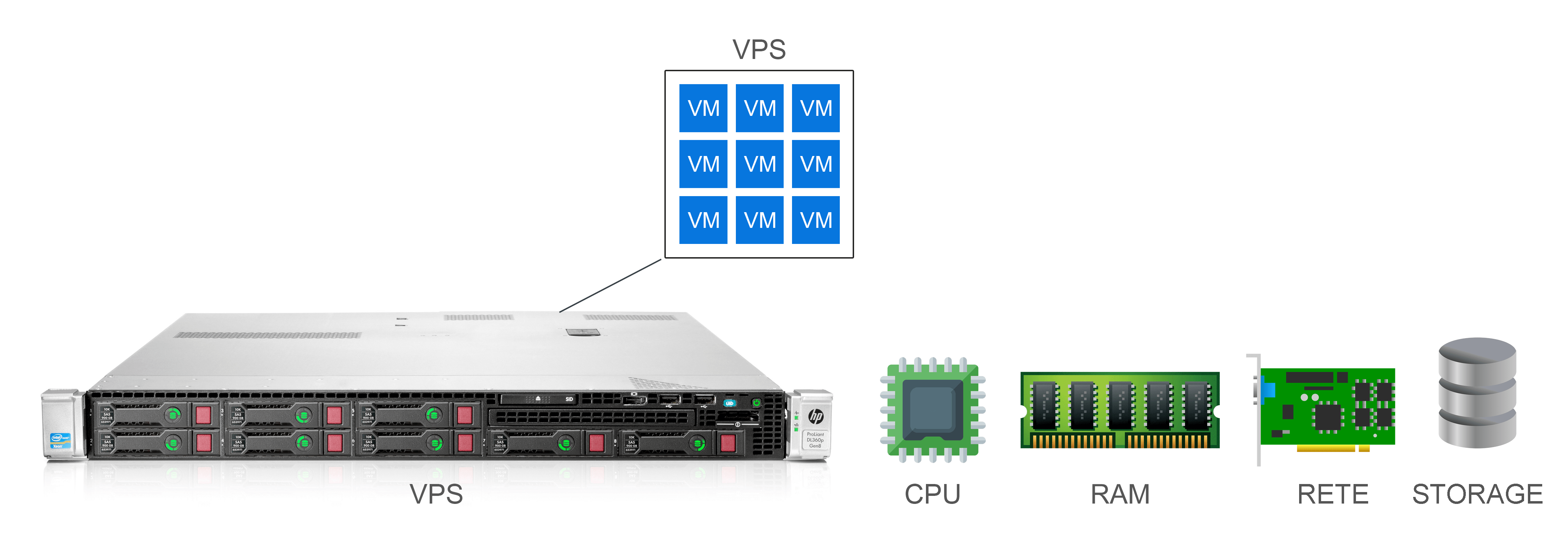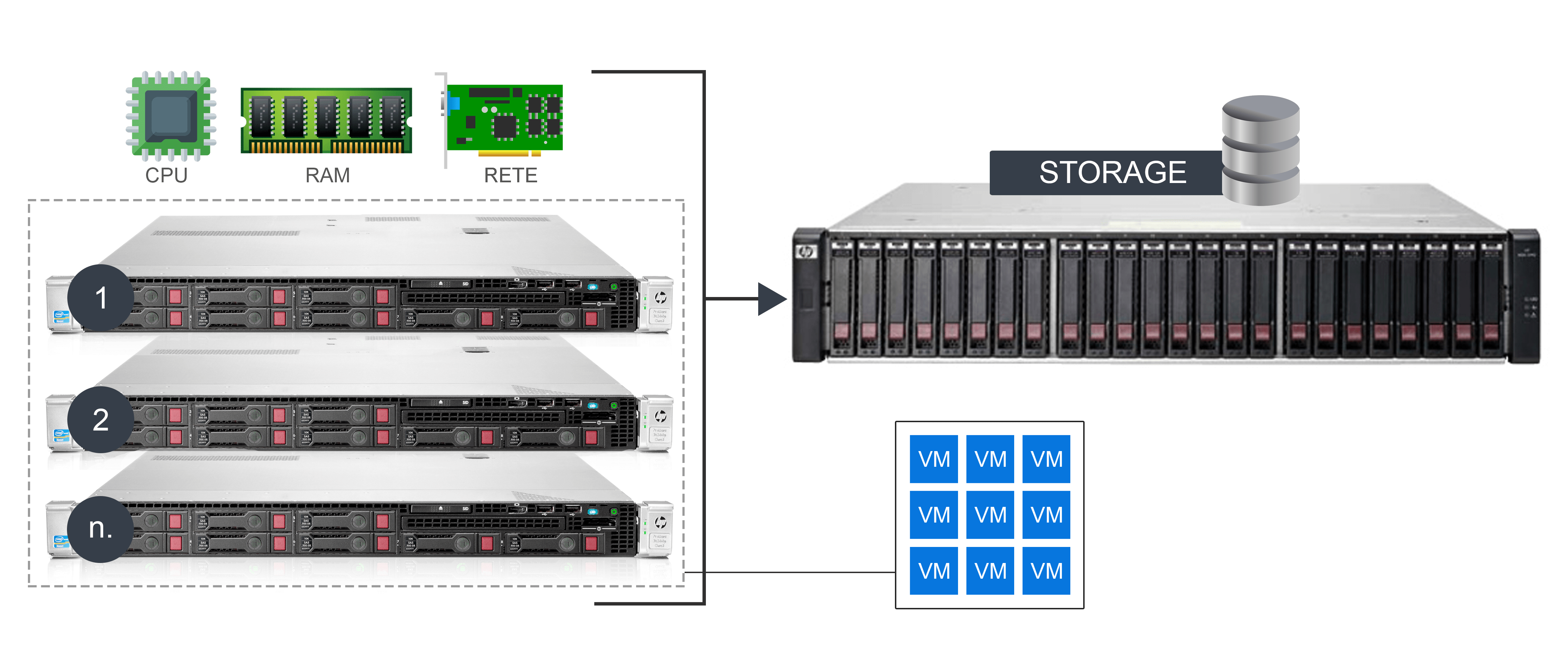VPS vs CLOUD SERVER
Often times, on Providers’ Websites you can find virtual servers offers (VM -Virtual Machine- here onwards) with a different nomenclature which usually brings to VPS and Cloud Server.
From a technical standpoint a VPS (Virtual Private Server) is a VM running on a hypervisor. But a Cloud server is a VM running on a hypervisor, after all. A doubt might arise: is there any real technical difference or is it a way to call in two different ways the same thing?
From a technical standpoint a VPS (Virtual Private Server) is a VM running on a hypervisor. But a Cloud server is a VM running on a hypervisor, after all. A doubt might arise: is there any real technical difference or is it a way to call in two different ways the same thing?
So, what are the differences between a VPS and a Cloud server?
The Cloud market, because of Providers, gave two different meanings in terms of value to two terms that should indicate the same thing.La volontà di accaparrarsi il mercato ha spinto i cloud provider del low cost a inventarsi un “sotterfugio”, per proporre VM a prezzi più bassi e allo stesso tempo risparmiare sui costi di implementazione delle infrastrutture hardware.
The will of conquering the market led low cost Cloud providers to invent a deception method to sell VMs with even lower prices and, at the same time, save money on the hardware implementations of infrastructures.
Selling solutions with different prices is a correct thing as it provides the client the opportunity of choosing. The real problem is that Providers should ought to explain in a transparent way the difference between the different products they sell.
However this transparency often times is not present and the client faces two products which are apparently identical, save for different prices. A VPS costs way less money than a Cloud server for sure.
VPS
A VPS is intended as a VM on a single host/physical hypervisor, be it VMware, Hyper-V or KVM.From a physical point of view, a VM is hosted on local disks of the hypervisor and uses the resources -CPU, RAM and network- of the specific hardware it runs on.

Cloud Server
A Cloud Server is a VM hosted on a Cluster configuration composed by 2 or more physical hypervisor that share the same storage.From a physical perspective, the files that make up a VM sit on a shared storage, but resources like CPU, RAM and network at any given time are given by one of the hypervisors in the cluster.
A Cloud Server sits on a Cluster, a VPS is hosted on a stand alone server.
That simply means that a Cloud Server is a fault tolerant system being in a Cluster, while a VPS is prone to faults being on a lone server.

In the event of a failure
In the case of a VPS, an hypervisor issue because of a hardware or software (on the virtualization layer) failure ends up in a VM not anymore accessible, at least unless the issue is solved. And should the hypervisor local storage gets corrupted and you don’t have a backup of the VM… you’re in serious trouble.Instead in a cluster if an hypervisor fails, VMs on such host are automatically moved on another physical host within the cluster.
Some may object that a cluster has a PoF (Point of Failure, a critical component that can fail) too. In the specific case, shared storage is a PoF.
But a cluster architecture, realized with HP or Dell hardware, has enterprise hardware and a reliable storage has at least two power supplies, two disk controllers and each data volume has a RAID system resilient to disk failures. Redundancy is the keyword.
A stand alone server, if you’re lucky, has a double power supply, but not a redundant motherboard or disk controller.
Analogy with aeroplanes: single or double engine?
A VPS is like a single engine plane like a Piper, and a Cloud Server is a plane with several engines, like a Boeing 747.
This isn’t a rule that holds for every Provider! Probably there are some that, in good faith, did their best to explain exactly what they’re offering. But there are some others that don’t have two separate offerings, VPS or Cloud Server, and instead offer a single product without precising what they are selling.
Therefore one has to pay attention to what is being purchased, and possibly browse the website looking for the greater number of pieces of information. If you can’t find enough information about the architecture and the technologies implied, then you’re safe thinking that that Provider prefers not to give too much information, as the more says, and the more shows his hands.. He prefers to exploit your “ignorance”.
Up to now, our Stellar offer doesn’t include any VPS but only Cloud Servers. As a consequence, all Stellar offers are VMs in a Cluster environment.
Additional resources
OverviewCloud Server definitions
CPU comparison
RAM comparison
Storage comparison
Support comparison
Cloud Prices
